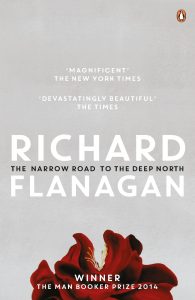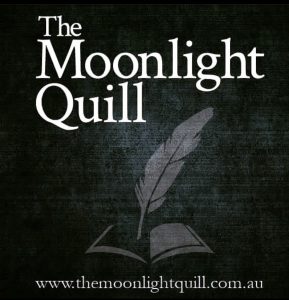 Richard Flanagan’s The Narrow Road to The Deep North almost ruined me for other books. Let me tell you why.
Richard Flanagan’s The Narrow Road to The Deep North almost ruined me for other books. Let me tell you why.
Remember when we all thought 2021 was going to be better than 2020? yeah me neither. With a news cycle so loaded, I have been finding it hard to focus on my reading. In between catching up on the latest pandemic stats and wondering when our lives will return to some type of normality, I have not been absorbing other information as well as I used to. I found myself skimming through the pages of whatever I was reading without fully taking in the story, which in turn left me feeling like I’d missed out after finishing a book. I decided to look towards easier reads, or even better, to re-visit something I had previously read. The thinking behind this was that I wouldn’t have to focus as much while reading something I was familiar with, and in turn this would perhaps help to shift my focus, and who knows, maybe even get something out of the book which I didn’t the first time round. Makes sense…right?
So after a quick glance at my overloaded bookshelf, I landed on the Narrow Road to the Deep North by Richard Flanagan. Published in 2013 and deserved winner of the booker prize in 2014, The Narrow Road to the Deep North tells the story of Dorrigo Evans, a military doctor who serves during World War 2 and is held as a POW by the Japanese during the building of the Burma railway.
More than just a war novel, this book is loaded with many complexities. Not only is Dorrigo marked by the horrific experience of being a POW under the Japanese imperial army, but he also suffers the longing for the woman he had an affair with just before shipping off. This woman, Amy, happens to be the young wife of his uncle who he randomly meets and is immediately besotted with. The connection to his uncle makes this such a conflicted experience for him and Amy, but nevertheless, they spend some time together and cement a love which will affect them for the rest of their lives.
Richard Flanagan also explores the effects of the brutality endured by the captured soldiers in the POW camp. diseased, suffering from severe malnutrition, overworked and often beaten, some to death, those who survive this horrible experience are forever marked. Flanagan based this part of the story on his father’s own experience during the war. In the below talk he gave at Melbourne’s Wheeler Centre he gives a detailed account of the writing process for this novel and how the stories his father would recount about his time in the prisoner camps served as inspiration. Sadly, his father passed away just as the novel was about to be published.
So yes, Richard Flanagan’s The Narrow Road to the Deep North almost ruined me for other books. For starters, Flanagan put a lot of work into it. It took him years to write, and he even experimented and completed it using different literary forms. The personal connection to some of the subject matter meant that he was deeply invested in producing a work of the highest standard and I believe it shows in the finished product.
He presents us with a raw account of the war experience and the lasting effects it has on his cast of characters. Flanagan even shows us the other side, detailing the post war experience of some of the Japanese officers who try and make sense of their role in the war, the brutality they inflicted on their prisoners and the motivation behind their actions.
Not one of Flanagan’s characters is held up on a pedestal. They have their flaws, not the least Dorrigo who after the war becomes a celebrated hero yet behind the adulation and honours received is a man who resorts to countless adulterous affairs, sees himself as fraud and does not understand why he is held up as this hero. There are certainly elements to this character that are unlikeable. But that is the beauty of fiction, we do not have to like who we are reading about yet can still walk away from the story with some great insight. He is deeply flawed, yet deep down we get a sense that the reasoning behind his actions and attitude is due to the helplessness he felt not only during a war where he was witness to countless atrocities but also the longing he carries with him for his lost love. So even with all his flaws, we do feel for the pain and trauma he carries.
There are many examples I could give as to why this book left me an emotional mess even after my second reading of it. Needless to say that Richard Flanagan put different elements in this story that will not only shock the reader but are also what I call “oh my god” moments. To go into more detail about these moments would be spoiling the story and would rob the reader of the experience. I will say however, that upon reading the last page of The Narrow Road to the Deep North a second time I had the exact same reaction as the first time round, and that is one experienced by many readers the world over. That moment when you put the book down, look into the distance and let out a deep sigh. So while it didn’t actually ruin me for other books, it sure came close.
While doing some research for this blog post I was delighted to discover that there is a TV adaptation in the works and I sincerely hope they stay true to heart wrenching emotion this book conveys.
So, is this book a masterpiece? I believe it is, but that is my subjective opinion being a fan of Richard Flanagan’s work in general and one based on my own experience with this book. it received many good reviews and won other prizes apart from the booker. Like all pieces of art however, it also received its share of negative reviews. but as I always say, don’t pay attention to the reviews. Experience it for yourself then make up your mind. I however, do highly recommend it.
Thanks for reading.
SUPPORT THIS PROJECT ON PAY PAL
Check out the socials!
TikTok



No comments yet.